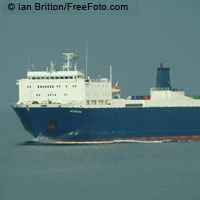Herculean project develops extreme engines
An EU project has developed technologies to take on the twin challenges of reducing the fuel consumed and CO2 emitted by marine diesel engines. Although shipping is considered the most environmentally friendly form of transportation, the air emissions from ships' exhausts still worry environmentalists and marine engineers alike. Professor Nikolaos Kyrtatos, the coordinator of a €33 million HERCULES High Efficiency Research & Development on Combustion with Ultra Low Emissions for Ships) project, is one of those troubled by these emissions. The project's goal is to research and develop new technologies to drastically reduce gaseous and particulate emissions from marine engines, while simultaneously reducing fuel consumption, CO2 emissions and engine life-cycle costs. 'The main objective of the HERCULES project is to develop efficient engines that use less fuel and so produce less emissions,' Professor Kyrtatos told CORDIS News. 'In this way, we will have ship engines that will be able to surpass existing and upcoming legislation on fuel emissions for maritime shipping,' he added. One of the many innovations in the project so far has been the development of two robust prototype 'extreme parameter engines' able to function under extreme thermal and mechanical pressures. 'I think the development of the extreme parameter engine is something that not only took a lot of effort, but also required the synergy of many partners in the project and many areas of engineering. So I think this is one of the star innovations in a range of innovations to come out of the project so far,' the Professor said. The project brings on board over 40 organisations from 10 countries, including two of the world's largest and usually fierce competitors in the shipping market, MAN Diesel and Wärtsilä. Together they hold between 85% and 90% of the world market.



